



If you ever find yourself craving a place where warmth isn’t just from the sun but from the people,Bacolod City is where you want to be. The moment you step into its lively streets,there’s this unmistakable buzz—a mix of cheerful chatter,the sizzle of street food grilling,and the distant strum of guitars from a nearby café. It’s a city that feels like a big,welcoming hug,where smiles come easy and the pace invites you to slow down and savor the moment. Walking through Bacolod,your senses come alive. The air carries the sweet aroma of freshly baked piaya,a local treat that’s flaky,sugary,and utterly addictive. You’ll hear the rhythmic beat of MassKara Festival drums if you’re lucky enough to visit during October,but even on regular days,the city pulses with creativity and joy. The colorful murals and lively markets tell stories of a community proud of its heritage yet eager to embrace new ideas. What really sets Bacolod apart is its blend of old and new—the Spanish-era churches standing tall beside modern cafés and art spaces. The people here have a laid-back charm but are fiercely proud of their culture,especially their food. Don’t miss trying the chicken inasal,a smoky,tangy grilled chicken that’s comfort on a plate. Bacolod isn’t just a destination; it’s a feeling,a place where you leave with your heart a little fuller and your taste buds dancing.
The information on this page is currently being reviewed by Tripkliq and should be used as a guide only
Eng word: Hello
Eng pronunciation: Hello
Local language: Hello
Eng word: Goodbye
Eng pronunciation: Bah-bye
Local language: Babay
Eng word: Thank you
Eng pronunciation: Sah-lah-maht
Local language: Salamat
Eng word: How much
Eng pronunciation: Tag-pee-lah
Local language: Tagpila
Eng word: Toilet
Eng pronunciation: Kah-sil-yas
Local language: Kasilyas
Eng word: Help me
Eng pronunciation: Boo-lee-gee ah-ko
Local language: Buligi ako
Eng word: Yes
Eng pronunciation: Oh-oh
Local language: Oo
Eng word: No
Eng pronunciation: In-dee
Local language: Indi
Eng word: Excuse me
Eng pronunciation: Pah-tah-wahd
Local language: Patawad
Founded in 1755 by Spanish settlers, Bacolod was established as a town in Negros Occidental. Its name is derived from 'bakólod,' the Hiligaynon word for a 'hill,' signifying the area's gentle slopes.
Bacolod City was declared the capital of Negros Occidental province in 1938, highlighting its significant role in the region's administrative and economic activities.
The MassKara Festival, a symbol of the city's culture and resilience, began in 1980. It is celebrated every October and features colorful masks, street dances, and vibrant costumes, uplifting the spirits of the locals and attracting tourists from around the globe.
During World War II, Bacolod played a crucial role as a stopover for submarines of the United States Navy, operating between Australia and the Philippines, to supply local guerrilla movements.
Bacolod City is home to numerous ancestral houses dating back to the Spanish colonial era and American period, showcasing its rich history and architectural legacy. These include the Balay Negrense and The Ruins, which are popular attractions.
Known as the 'Sugar Bowl of the Philippines,' Bacolod's economy historically thrived on sugar cane farming and sugar production, marked by sprawling haciendas and significant contributions to the country's sugar industry.
The Bacolod City New Government Center was inaugurated in 2007. This landmark building symbolizes the city's growth and development and serves as the hub of local government activities.
A historical landmark, the Bacolod Public Plaza serves as the city's center for major public gatherings, cultural events, and celebrations since its establishment in the late 19th century.
Bacolod is known for its educational institutions, including St. La Salle University established in 1952 as a testament to the city's commitment to education and academic excellence.
In Bacolod City, the most common Power Adaptor is Type A, Type C.



A whole roasted pig, known for its crispy skin and tender meat, often served during special occasions and celebrations.
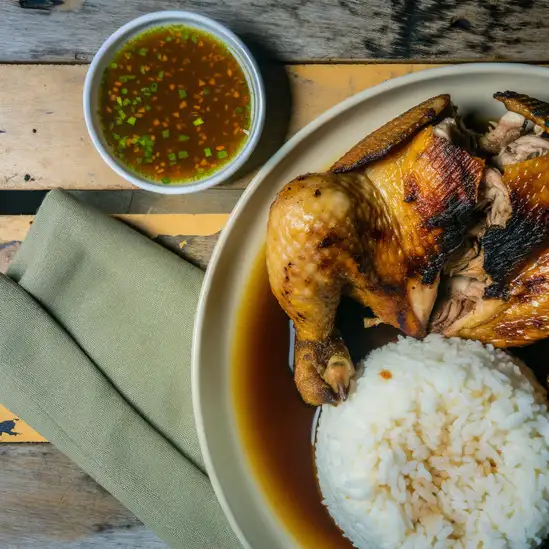
A famous grilled chicken dish marinated in a mixture of vinegar, calamansi, garlic, and spices, typically served with rice and a side of dipping sauce.
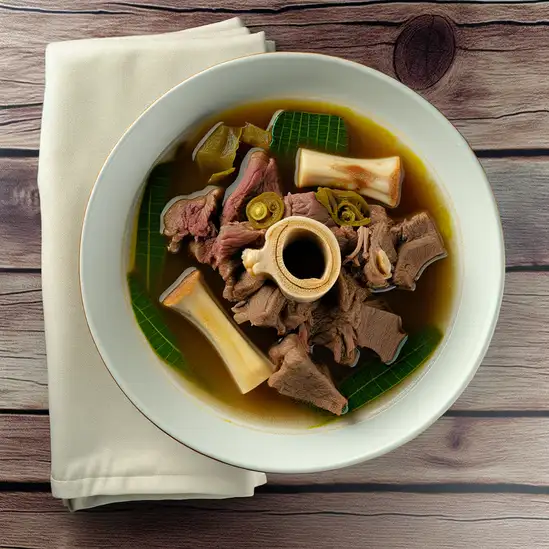
A traditional beef soup that combines elements of sinigang and nilaga, made with tender beef shank, bone marrow, and flavored with a unique souring agent called batuan.
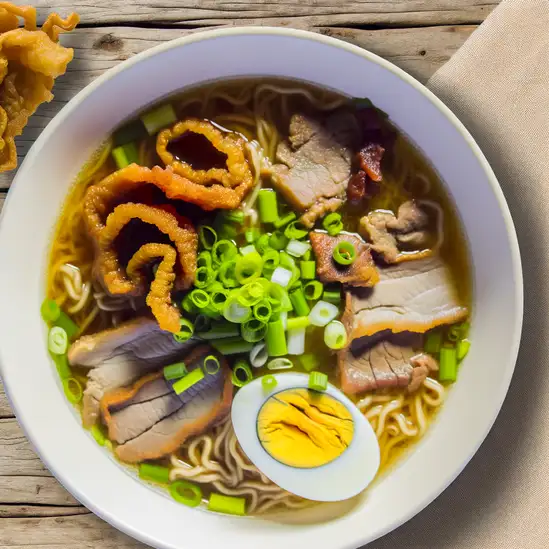
A hearty noodle soup made with pork, beef, and chicken broth, garnished with chicharrón (crispy pork skin), green onions, and sometimes a raw egg.

A Filipino soup dish made with wonton dumplings filled with minced pork, served in a savory broth with vegetables and sometimes noodles.
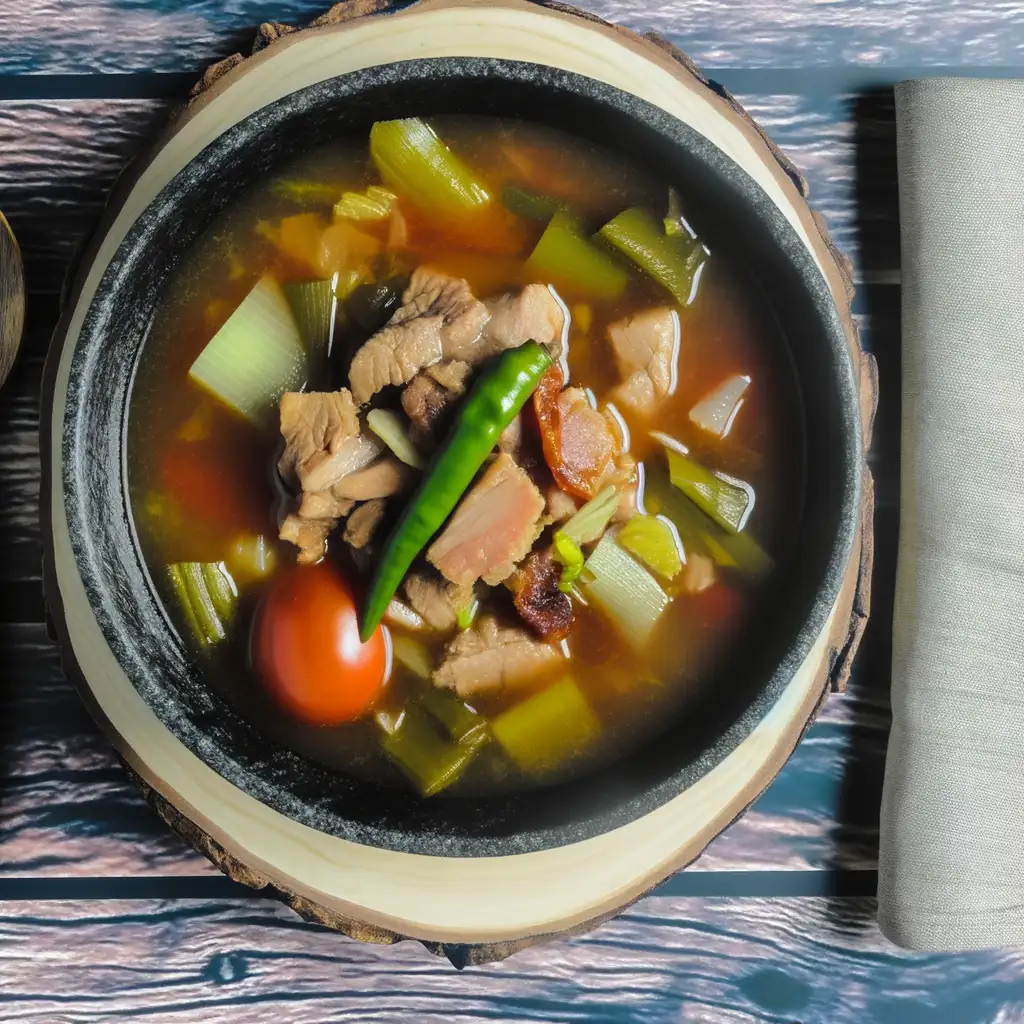
A sour pork soup made with tamarind, tomatoes, and various vegetables, known for its tangy flavor and comforting warmth.
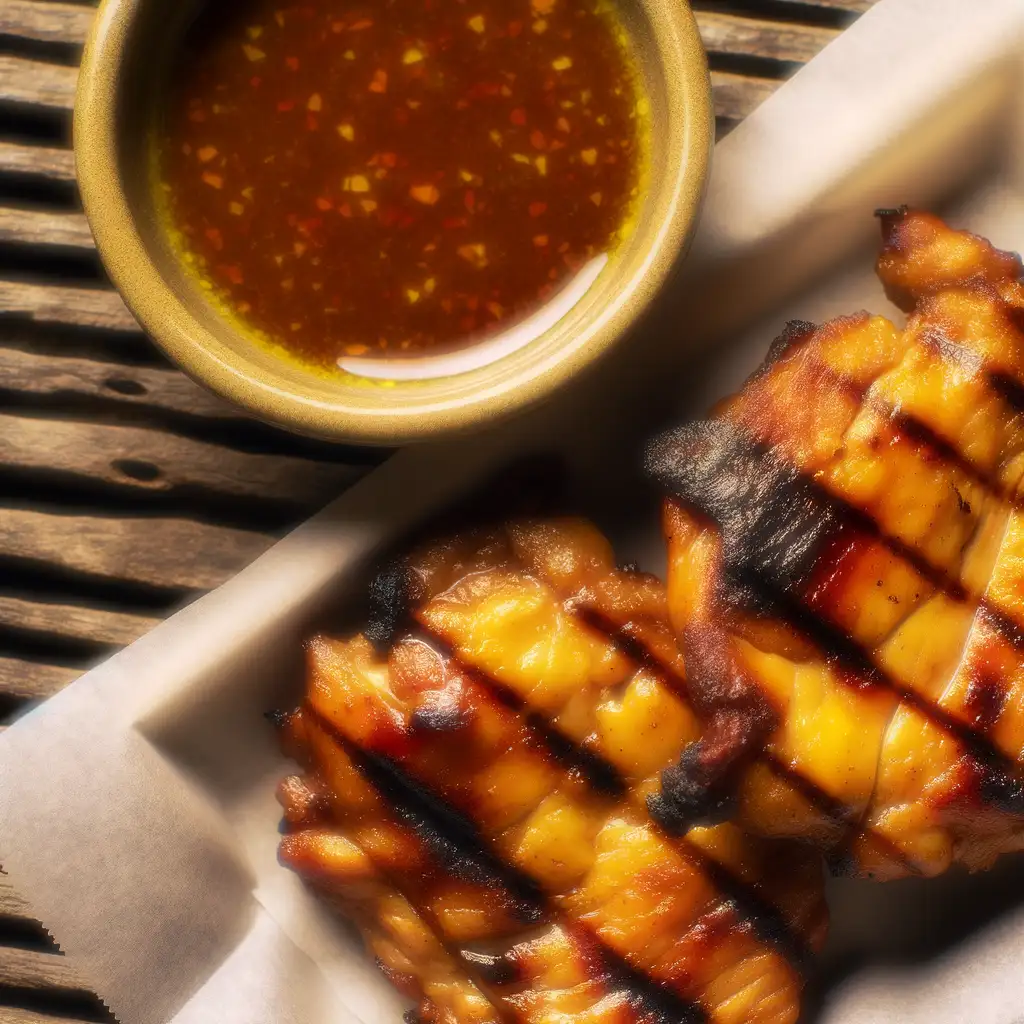
A variant of Inasal na Manok, this dish is known for its distinct flavor and is often served with a side of garlic rice and a dipping sauce made from soy sauce and vinegar.

Steamed rice cakes that are often served as a side dish or dessert, typically made with rice flour and coconut milk, and sometimes topped with cheese.
Imagine stepping into a place where history hums through the streets and the ocean breeze carries the scent of salty adventure—that’s Cebu City for you. The moment you arrive,there’s this lively energy that wraps around you,a mix of old-world charm and modern buzz. You’ll find yourself wandering through colorful markets where the chatter of vendors blends with the aroma of freshly grilled street food—think sweet,smoky lechon sizzling over coals,tempting you at every corner.
Cebu’s character is a beautiful blend of the past and present. Ancient Spanish forts and centuries-old churches stand proudly alongside sleek cafes and vibrant street art. The city pulses with warmth,not just from the tropical sun but from the people who greet you with genuine smiles and stories. At night,the streets light up with music and laughter,and you can almost taste the festive spirit in the air.
What really makes Cebu unforgettable is how it feels alive in every sense. You can hear the waves crashing nearby,see the colorful jeepneys weaving through traffic,smell the tropical fruits at the market,and feel the warmth of the sun on your skin as you explore. It’s a place where culture,history,and everyday life blend seamlessly,inviting you to dive in and experience its vibrant soul firsthand.
If you ever find yourself craving a place where history hums softly alongside the buzz of everyday life,Iloilo City is where you want to be. The moment you step into its streets,there’s this warm,inviting energy—like the city is gently nudging you to slow down and savor its stories. You’ll notice the colonial-era buildings standing proudly beside modern cafes,their facades telling tales of centuries past. The air carries a subtle mix of salty sea breeze and the sweet aroma of freshly baked pan de sal,making every morning feel like a comforting embrace.
Walking through Iloilo,you’ll hear the lively chatter of locals,the clinking of glasses in cozy eateries,and the distant strum of guitars from street performers. The city’s character shines brightest in its festivals,especially the Dinagyang,where vibrant costumes and rhythmic drums fill the streets with infectious joy. But even on quieter days,the genuine smiles of Ilonggos and their easygoing hospitality make you feel like you’ve found a second home.
And then there’s the food—oh,the food! From the rich,savory batchoy served steaming hot in humble noodle shops to the sweet,creamy taste of fresh mangoes,every bite is a celebration of local flavors. Iloilo isn’t just a place to visit; it’s a place to experience,where every corner invites you to pause,breathe,and fall a little in love with its soul.
Known as the 'City of Gentle People,' Dumaguete is a jump-off point to Apo Island,a world-renowned diving destination with vibrant marine life and coral reefs.
ExploreIf you ever find yourself craving a place where nature’s calm meets a laid-back island spirit,Puerto Princesa is where you want to be. The moment you step off the plane,there’s this warm,salty breeze that wraps around you,carrying the faint scent of the sea and tropical blooms. It’s a city that doesn’t rush — people move with a gentle rhythm,and the streets hum softly with the chatter of locals and the occasional strum of a guitar from a nearby café. It feels like a breath of fresh air,both literally and figuratively.
What really makes Puerto Princesa stand out is its deep connection to nature. The famous Underground River is just the beginning — lush mangroves,crystal-clear waters,and vibrant coral reefs surround the city,inviting you to explore. You can hear the calls of exotic birds in the morning and watch fishermen bring in their catch as the sun dips low,painting the sky in shades of pink and orange. The food scene here is a delightful surprise too — fresh seafood grilled right on the beach,sweet tropical fruits bursting with flavor,and local dishes that tell stories of the sea and the land.
But beyond the sights and tastes,it’s the people who make Puerto Princesa unforgettable. Their warmth and genuine smiles make you feel like you’re not just visiting,but truly welcomed. Whether you’re wandering through the bustling market or sharing a laugh with a vendor,there’s a sense of community that lingers long after you leave. It’s a place that invites you to slow down,soak in the simple joys,and leave with a heart full of stories.
If you ever find yourself wandering through the heart of Bohol,Tagbilaran City greets you with a warm,unhurried rhythm that feels like a gentle hug after a long journey. The city hums with life—not the overwhelming buzz of a metropolis,but a lively,welcoming energy where jeepneys rattle by and street vendors call out their fresh fruit and local snacks. As you stroll along the waterfront,the salty breeze carries the faint scent of grilled seafood mingling with tropical flowers,inviting you to slow down and savor the moment.
Tagbilaran’s charm lies in its blend of old and new. You’ll catch glimpses of Spanish-era churches standing proudly beside colorful markets where locals barter over ripe mangoes and sticky rice treats. The city’s pulse is deeply tied to its people—friendly,easygoing,and proud of their heritage. At night,the streets light up with laughter and music spilling from small eateries where you can taste the rich flavors of Boholano cuisine,like the sweet,tender kalamay or freshly caught fish cooked with coconut milk.
What really stays with you is the city’s sense of community and its connection to the sea. Whether you’re watching fishermen haul in their catch at dawn or joining a lively fiesta,Tagbilaran feels like a place where stories are shared over steaming cups of coffee and where every corner invites you to discover a new layer of its soul. It’s not just a stopover—it’s a place that quietly pulls you in and makes you want to stay a little longer.
Famous for the Ati-Atihan Festival,Kalibo is also a gateway to Boracay Island,one of the most popular beach destinations in the world with powdery white sand and crystal-clear waters.
ExploreSome ATMs may be tampered with skimming devices to steal card information, which is then used for fraudulent transactions.
Some money changers may use sleight of hand or provide incorrect exchange rates to shortchange tourists unfamiliar with the local currency.
Scammers may approach tourists claiming to collect donations for a local charity or disaster relief, but the money goes into their pockets instead.
Tourists may be sold counterfeit or low-quality products, such as fake branded items or defective electronics, at seemingly good prices.
Individuals may pose as tour guides and offer to show you around, only to demand exorbitant fees or lead you to overpriced shops where they get a commission.
Some restaurants or food stalls may not display prices and charge tourists much higher rates than locals for the same items.
Some taxi or tricycle drivers may refuse to use the meter or charge tourists inflated rates, especially if they sense you are unfamiliar with the area.
Crowded areas like markets or festivals can attract pickpockets who target distracted tourists for their wallets, phones, or other valuables.
Individuals may approach tourists with emotional stories about needing money for a sick relative or to get home, preying on their sympathy.
Street vendors may charge tourists significantly higher prices for souvenirs, food, or other items compared to locals.
The Philippines has very strict laws regarding the possession, use, and distribution of illegal drugs. The Comprehensive Dangerous Drugs Act of 2002 (Republic Act No. 9165) imposes severe penalties, including long prison sentences and heavy fines, for drug-related offenses. Tourists should be extremely cautious and avoid any involvement with illegal drugs to prevent serious legal consequences.
In Bacolod City, smoking is regulated under the Tobacco Regulation Act of 2003 (Republic Act No. 9211) and local ordinances. Smoking is prohibited in public places such as schools, hospitals, public transportation, and enclosed public spaces. Designated smoking areas are provided in some establishments, but these must comply with specific guidelines. Violators may face fines and other penalties.
Vaping in Bacolod City is subject to similar regulations as smoking. The use of electronic cigarettes is prohibited in public places where smoking is banned. Establishments may have designated vaping areas, but these must adhere to local regulations. Tourists should be cautious and inquire about specific rules in different venues to avoid penalties.
What are other people saying about Bacolod City?
Recent Social posts about Bacolod City
There is nothing to show you for now.